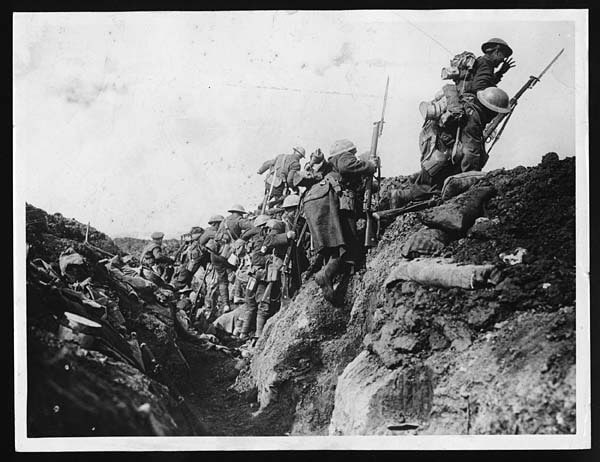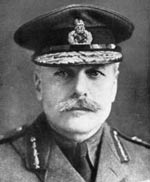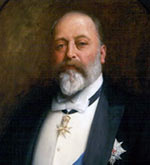August 2014 is the Centenary of the First World War – a dreadful war which cost the lives of millions of soldiers and civilians. An estimated nine million soldiers were killed and countless more civilians.

First World War
The first thing is to feel grateful that we didn’t live through such an appalling catastrophe and a waste of human life. War is undoubtedly man’s greatest tragedy and the emotional suffering of this ‘Great War’ is incomparable. I’m glad I didn’t have to make the choice that many young men of the 1914-18 period did.
However, if we could go back in time, would you fight for your country of birth or would you be a conscientious objector?
Was there any justification for the First World War?
Would I fight for Britain?
I am British and have often thought about this question.
Firstly, I believe the British Empire was wrong. Britain had no right to be ruling in India, African countries, parts of Asia and parts of the Middle East. I would not fight to save the British Empire because I would support the independence movements in Ireland and India.
If I joined the British army and found myself in India or Ireland, I would feel compromised because I wouldn’t want to be party to supporting an Empire which denied the democratic rights of the inhabitants.
However, the First World War wasn’t primarily about promoting the British Empire. Most soldiers were sent to the Western Front to fight the German army.
Defence of Belgium and France
Sometimes, the First World War is portrayed as a senseless war where we fought for no reason. However, in 1914, there seemed to be a certain moral necessity for Britain to be involved.
Although the causes of the First World War are complex and multifarious – in August 1914, Germany was invading Belgium and France. This violated Belgian neutrality and also French borders. Britain had signed a guarantee of Belgian independence, and should Belgium request support from an invading army, Britain had a treaty obligation to support.
This makes it very difficult not to join the British war effort. It is true, Britain was fighting for self-interest. We didn’t want Germany to dominate Europe, we wanted to protect our trade interests and also the rule of international law. But, it wasn’t entirely selfish. It was wrong for the Germans to invade Belgium and France. In that sense, the First World War could be seen as a defensive war against an invading army.
If Britain had stayed neutral, it is very likely that ultimately Germany would have defeated the French and occupied both Belgium and France. Germany was not a democracy but ruled by an autocratic military state and powerful Tsar. A military victory would arguably have strengthened the militaristic tendencies within Germany and the occupation of France and Belgium would have violated the rights of the Belgians and French.
German atrocities
German atrocities were definitely exaggerated by the Allied powers. Yet, they did occur. Belgian civilians were shot. The Germans did sink neutral shipping with civilians on board. It is inevitable that an invading and occupying army commit atrocities; another reason why the invasion of German forces needed to be opposed.
The Allies were definitely not blameless; for example, there are reports of shooting German prisoners of war soon after capture. But, when an invading army occupies a neutral country and kills innocent civilians – it becomes hard to refuse to fight.
The senseless nature of the conflict
In August 1914, there seemed to be a clear case for war. If the Allies had prevailed by Christmas – defeated the German army, reigned in imperialistic ambitions and restored the continent to peace – we may look back and think ‘What a wonderful war.’
But, the First World War didn’t end quickly and decisively. For the soldiers in the trenches, it seemed a senseless slaughter with lives needlessly sacrificed for inevitable failures. Sitting in a London coffee shop, it is easy to say the war was justified. But, when you are drowning in the mud of Ypres with death and destruction all around you – many soldiers (on both sides) started to ask – is it really worth it? Why are we fighting? They just wanted to go home.
“the old lie:
dulce et decorum est
pro patria mori”
The long and bloody conflict meant the initial idealist aims seemed lost in the mud and death of the trenches. Both sides became increasingly desperate in their quest to win. The media was used to whip up hatred of the other side. People of German descent were abused in the street and there was a growing intolerance of any dissent from the official line.
Even if you see a moral justification for fighting for Britain, it is impossible not to sympathise with the horrors of the soldiers and their desire to just see the war end.
The difficulty is how could Britain have ended the war in 1916, 1917? It would have essentially meant giving into German demands and allowing the German army to occupy France. The death would have stopped, but it leaves a militaristic regime controlling most of Europe.
It is like a terrible Hobson’s choice – both continuing to fight and stopping fighting had terrible consequences.
Conclusion
I admire the courage of conscientious objectors. But, at the same time, I am not a pacifist. I do believe war can be justified to protect your country from an invasion.
I dislike the patriotic vitriol that was created in Britain and (all participant countries). Yet, despite that, there were still reasons to fight for Britain.
I don’t support the British Empire and many actions of Britain in the First World War (such as promising the Arabs a homeland in return for fighting against the Ottoman Empire – show how Britain could be deceitful and ignore democratic ideals when it felt like it.)
Yet, however, the many failings Britain had – the alternative of a militaristic Germany dominating Europe was much worse.
Would I fight for Germany?
If I was born in Germany, I would like to think I would be a conscientious objector. I believe following orders and fighting for your Fatherland is no excuse for supporting an illegal invasion. There are greater ideals than nationalism. Your country isn’t right, just because you were born in it.
Citation: Pettinger, Tejvan. “Was the First World War justified?”, Oxford, UK. www.biographyonline.net, 18th June 2014
Related



Related articles
